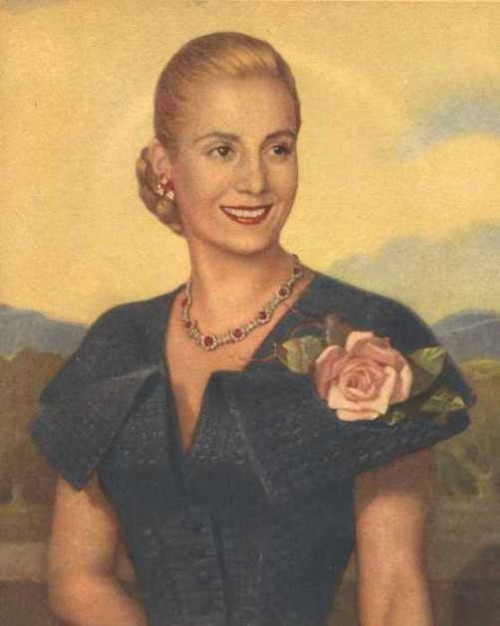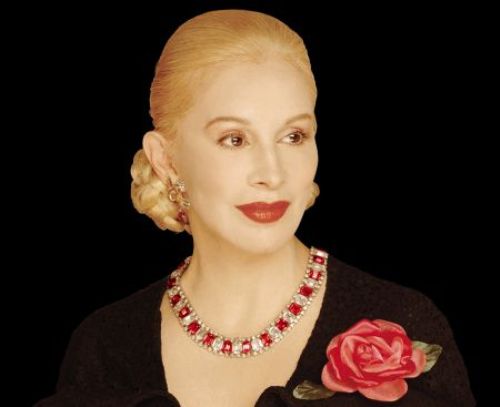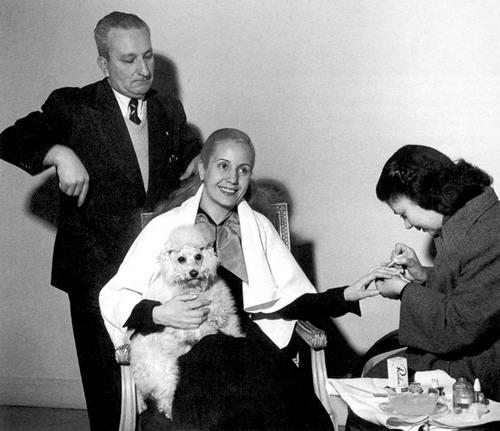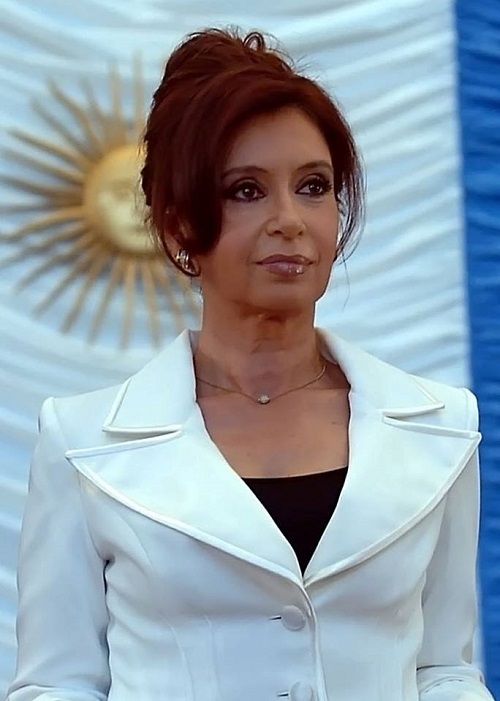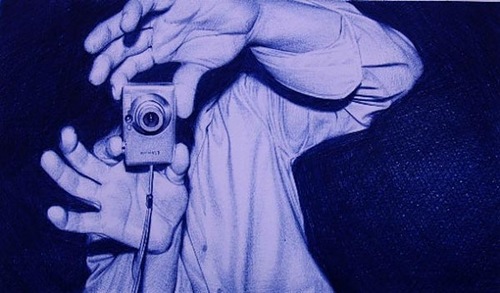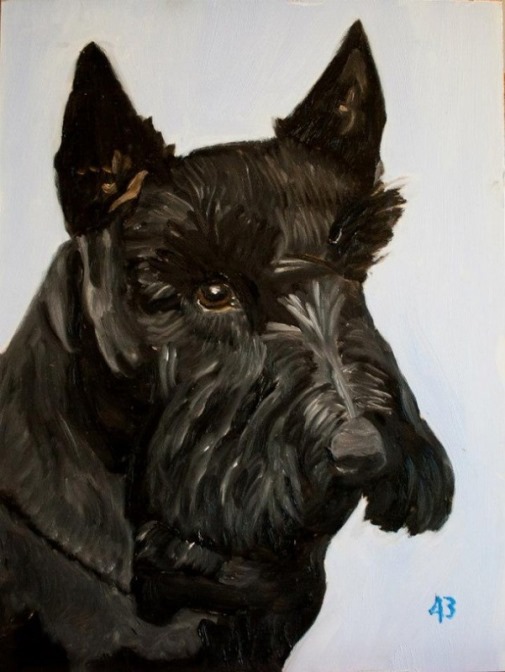Evita Peron of Argentina
Evita Peron of Argentina was the second wife of President Juan Peron and the First Lady of Argentina from 1946 until her death in 1952. Argentinians loved her not only for responsiveness and generosity, but also beauty. Chiseled body in white dress from Chanel, thin fingers in rings with heavy jewels. Famous phrase in the theater “Colon”: “These jewels, my people, I wear for you!” aroused a storm of applause. Argentinians perceived her as a deity, she was a saint and they prayed for her. Let Juan was president, Evita was considered the spiritual leader. She empowered the masses by becoming a symbol of triumph over the poverty and oppression of the old social order. Her life forever changed the society of Latin America by showing her people that even the most disenfranchised among them could rise to the highest levels of influence, and could do so from within the system and not by revolution.
The question: “What do you want to be when you grow up?” She answered: “Princess!” As a child, Eva imagined how she would give receptions, shake hands and greet the cheering crowd. Favorite game – stand in the middle of the room and slowly flagging imaginary people. But the princess could be only in the capital, and not in the remote Los Toldos, where she lived with the family.
In 1934, 15-year-old Eva moved to Buenos Aires. First she worked as a model, then an actress – she even managed to shine in supporting roles of several films, and finally, the crowning career was the night cabaret, where she sang, dressed in feathers and sequins. Eva had a series of relationships, and via some of these men she did acquire a number of her modeling appointments. She bleached her originally black hair to blonde, which would remain that way for the rest of her life.
“Without fanaticism will not achieve anything.” When Eva and Juan married, she was 24, he was – 49. After the wedding his career came up. Day after day, like a spell, Eva repeated the same thing – he should become president. After winning the presidential election, standing on the balcony, Juan thanked his wife for love, trust and support, the audience chanted “Eva!” Her power was derivative of her husband’s position as president. Evita used her role as a wife of the president to project her own larger-than-life image upon the public consciousness.
Evita made herself into the glamorous and romanticized ideal of the modern Latin American woman, who rose above her humble origins to a position of prestige and influence. She created an aura of style and sophistication about herself. This was an era when jewels and furs still carried social significance and status, and Evita used these props to great effect.
“I am an ordinary woman who lives to serve Peron and my people.” Evita’s work to help children was inspired in her belief that “the country which forgets its children renounces its future.”
Evita especially worried about the education, entertainment and health of the children and youth of the country. The Foundation set up a plan for the construction of one thousand schools throughout Argentina, as well as agricultural schools, workshops, nursery schools and daycare centers. The Amanda Allen Children’s City and the Students’ City formed part of the educational action plan. The Children’s City was created to shelter children from two to seven years of age who were orphans or whose parents’ were unable to care for them. The Students’ City was a residence for students from the interior who came to Buenos Aires to study and had no place to stay.
The Children’s Tourism Plan began in 1950 and enabled children to vacation in the mountains, at the seashore and in other tourist spots throughout the country. The vacation colonies were the jewels of this plan.
The Children’s Competitions began in 1948 with soccer and were expanded to include many other sports; they enabled the Foundation to provide medical checkups to over 300,000 children.
The Children’s Hospital and Epidemiology Center, and the Children’s Recuperation Clinic in Terma de Reyes were among the Foundation’s contributions to improving children’s health care. The National Pediatric Hospital was almost finished at the time of the military coup in 1955. It was never completed.
At 33, she was diagnosed with uterine cancer. “Honey, you have a simple inflammation” – encouraged her husband. Flattering, she replied that he was quite right, even though she knew about the disease. The last thing that Eva said, referring to her husband, “Honey, I love you more than life …”
Evita came to say goodbye to millions. Embalmed body stood in the chapel of the House of Trade Union Confederation for 15 days. Argentina went with her whole. Pope received 40,000 letters asking to rank her among the saints. But the church has confused her cabaret past, so the question is still open.
Evita Peron of Argentina
sources:
nyu.edu
sugneddin.livejournal.com
